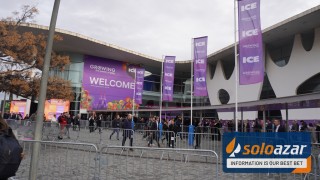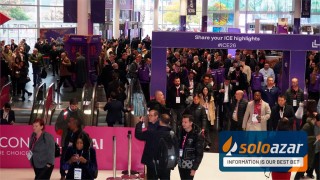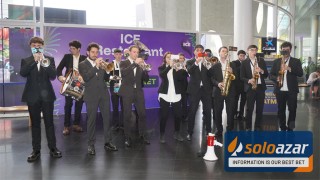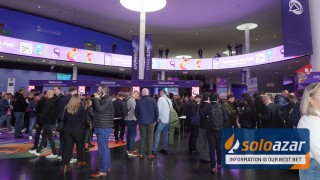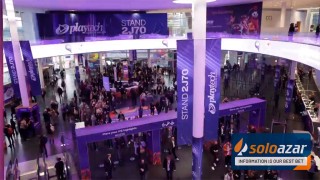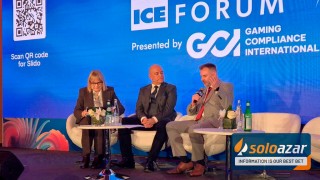Are free-play offers a waste of money for casinos?: Analysis
Tuesday 06 de August 2024 / 12:00
2 minutos de lectura
(Las Vegas).- Free play campaigns—those casino incentives in which customers are given money to gamble on the house — have historically grown exponentially as a form of competition between gaming institutions. This article analyzes this type of marketing programs and recent studies on the matter.

If one casino offers $10 in free play, but a consumer chooses another that offers $15, then the first casino will adapt to offer $20 and so on.
These programs have gotten so big over the decades that operators are concerned to cut back on free play lest they lose a major market share, said Anthony Lucas, a professor and researcher at UNLV’s Harrah College of Hospitality. A recent study by Lucas, however, shows that fear may be unfounded.
“It’s an understandable fear, an understandable concern, but the reality is, it’s not necessarily so,” Lucas said. “And you have to remember that money can be used for a lot of other things that can improve gaming spend and visitation.”
Free-play campaigns are not only huge expenses, they are annual ones, Lucas said, meaning they virtually never stop.
“And so they have become far and away, especially in the United States, the most expensive play incentive that the casinos fund,” he said. “So it’s a huge annual dollar amount, and it’s very unclear as to whether these campaigns are achieving their stated objectives.”
Free play has two primary aims: to increase spending and the number of trips that a person makes, Lucas said.
“So, especially in the United States, it’s a very important piece of research to try to understand—is this thing working?” he said. “Because we sure are leaning into it.”
In their study, titled “Measuring the Impact of Reduced Free-play Offers on Casino Loyalty Behavior,” Lucas and his collaborator, San Diego State University professor Katherine Spilde, gathered 400 mid-level players with the same free-play “offer tier,” and gave them all $15 a week in year-one of the study to see how much they spent.
In year two, Lucas said, they split the group up into smaller sections of 100 people and gave them varying amounts of $0 to $15 in free play. What they found was that there was no significant difference in spending or visiting either for the control group that still had $15 or the experimental group whose offers were knocked down to $10 a week.
“We didn’t see any change in visitation or gaming spend over that six-month period,” Lucas said. “That’s (a) pretty, pretty important result, because you just decreased your play incentive costs by 33%—going from $15 to $10.”
The group that only got $5 spent more than in the previous time period, even with a 67% cut in their free-play offering, Lucas said. The spend for the $0 group also saw no significant difference.
“Nobody would have guessed that,” he said. “Like, I don’t care who you talk to—nobody. If it was a wager in the sportsbook, no one is going to bet on that there’ll be no change.”
The study doesn’t necessarily label free-play as categorically bad or ineffective, Lucas said, it just shows that casinos are not doing a very good job of measuring it.
There’s over a dozen studies out there on free-play campaigns, and the message of Lucas’ research is undeniably clear, he said.
“When you come at the same problem with different methods and using different samples and from different markets, but you keep getting, generally, the same answer—you’re probably on to something that’s pretty powerful,” he said.
This study was conducted using data from a tribal casino in the western U.S., per a release.
While incentives like free-play campaigns may be considered best practices in the gaming industry overall, they also don’t always fit in the same way with a tribe’s purpose, said Spilde, who is also the endowed chair of the Sycuan Institute on Tribal Gaming in the L. Robert Payne School of Hospitality & Tourism Management at SDSU.
In addition to a return on investment, tribes have another metric by which they measure business: return on community, Spilde said. And, researchers found that where less free play was gifted, the return on that smaller amount was more positive. “Less is more,” Spilde quipped.
In that context, gaming managers were treating the free-play dollar as tribal money, said Spilde, who emphasized that 100% of net gaming revenue from tribal gaming properties is moved over to tribal governments. As a result, operators were treating that dollar more conservatively.
“If the casino management or the marketing team understands that they aren’t just taking that dollar, if you will, and giving it to a player from the casino,” she said, “they’re taking it from a scholarship fund for tribal members, they’re taking it from health care … they’re taking it from the housing department or the roads department—it’s actually going to have a real impact to remove that dollar from the tribe’s economy, from the return on community.”
She’s excited that this type of research has highlighted the difference between tribal gaming and other gaming segments and the former’s reliance on “return on community.”
“Sometimes, from a business perspective, outsiders may say, ‘Well, return on community is not good business practice,’” Spilde said. “But, in fact, what some of our research shows is that it actually is better business practice.”
Free play began to reward players, build loyalty and differentiate properties, Spilde said. She and Lucas ask in their study: Has free-play lost its perceived role as a differentiator if everybody’s doing it?
There are many other ways to differentiate a property that are harder for others to imitate, she said.
“Like in the physical infrastructure of your amenities,” Spilde suggested. “Your microbrewery, or your pool, or your hotel rooms or your restaurants. Those are harder to copy.”
The study could ultimately provide a welcome possibility to casinos to rollback conspicuous free-play programs, he said. Though this research was conducted through a single tribal casino, he encouraged other operators to start doing a randomized, controlled trial of their own.
Spending so much money on free-play incentives has become something of a “fool’s errand,” Lucas said.
“Everybody always says, ‘Well it’s a competitive market—if I don’t do it, my competitors will, I’ll lose all my business,’ ” he said. “Well, that’s not necessarily so. There’s something to be said for having the nicest place. You could reinvest that capital in the servicescape, the facility itself, parking, service delivery, improving bottlenecks and things like that—even staff.”
This article originally appeared on Las Vegas Weekly
Categoría:Analysis
Tags: Sin tags
País: United States
Región: North America
Event
ICE Barcelona 2026
19 de January 2026
Merkur Group Shines in Barcelona with Triple ICE Triumph
(Espelkamp/Barcelona).- Merkur Group secures three prestigious international accolades for operational excellence, social commitment, and standout exhibition experience.
Friday 06 Feb 2026 / 12:00
Eduardo Aching: "ICE 2026 was an exceptional event for Konami and its casino partners"
(Barcelona, SoloAzar Exclusive).- Eduardo Aching, Vice President of iGaming & International Gaming Operations at Konami Gaming, reflects on the company’s standout participation at ICE 2026, the strong reception to Solstice 49C and Konami Online Interactive, and the strategic push toward emerging regulated markets and expanded global partnerships.
Friday 06 Feb 2026 / 12:00
Belatra Games Strengthens LatAm Expansion and Innovation Strategy After ICE Barcelona 2026
(Barcelona, SoloAzar Exclusive).- Kateryna Goi, Chief Marketing Officer at Belatra Games, shares her assessment of the company’s participation in ICE Barcelona 2026, the quality of industry engagement at the event, and the strategic priorities shaping Belatra’s growth in 2026, with a strong focus on Latin America and narrative-driven innovation.
Friday 06 Feb 2026 / 12:00
SUSCRIBIRSE
Para suscribirse a nuestro newsletter, complete sus datos
Reciba todo el contenido más reciente en su correo electrónico varias veces al mes.











